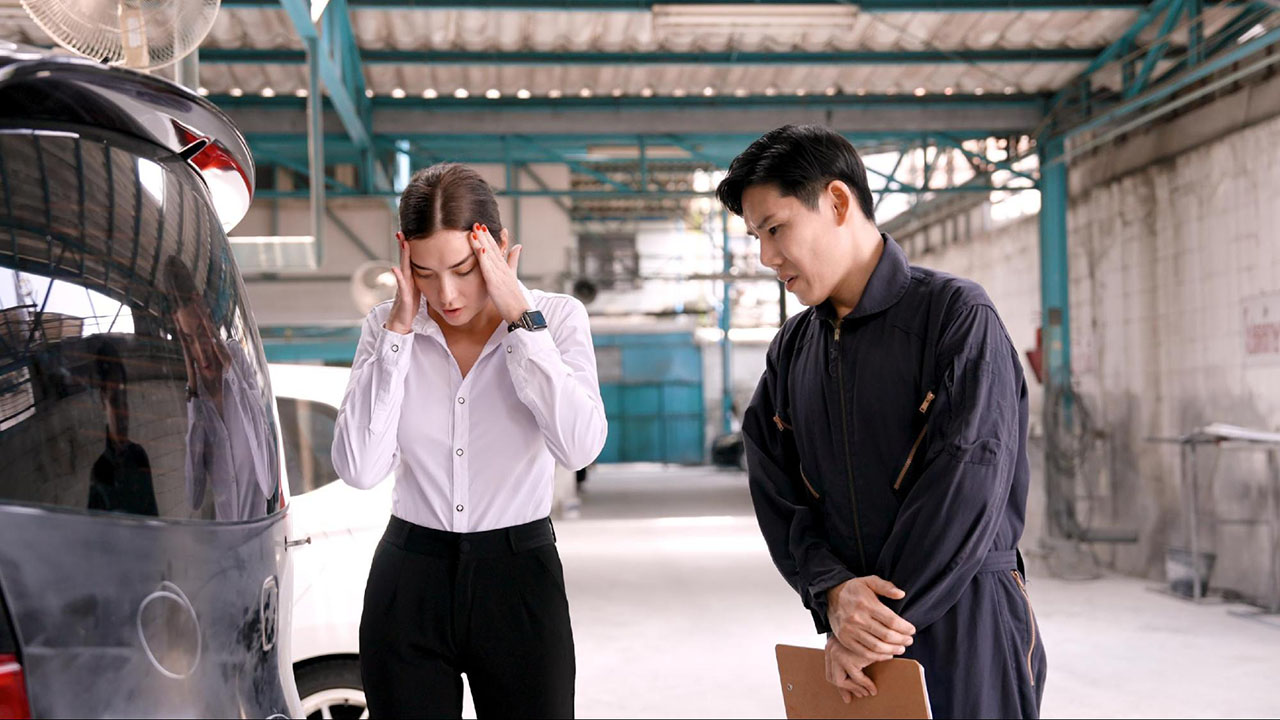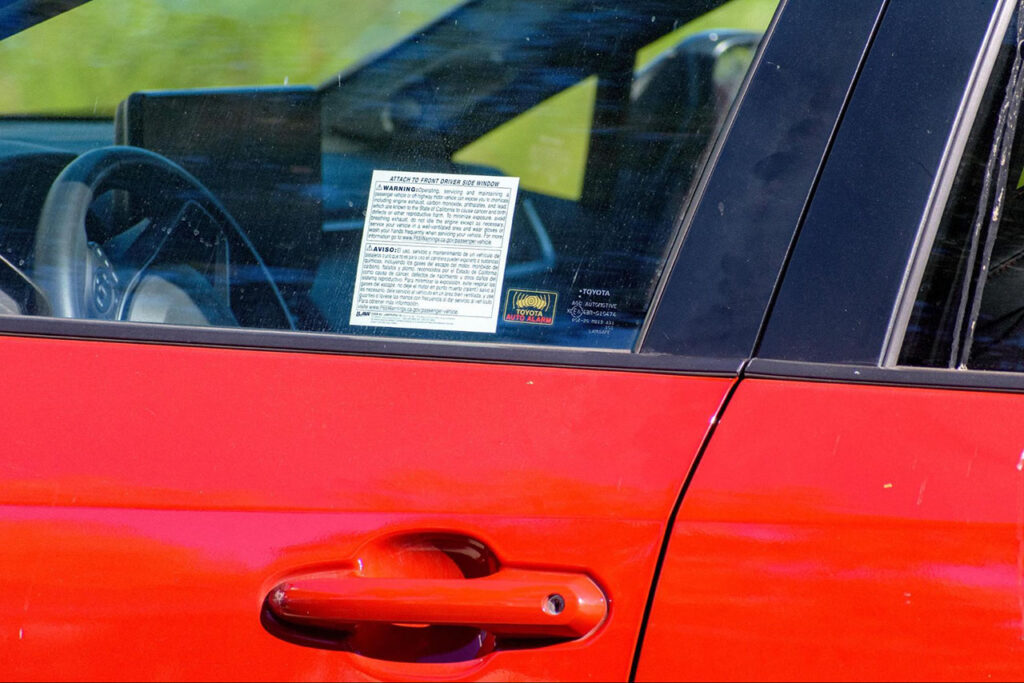
California Dealers Selling Lemon Law Buybacks Without Telling You? Here’s What You Need to Know
“They Didn’t Tell Me It Was a Lemon Buyback”
“Kelly” was excited about his new-to-her sedan from a dealer in Fresno. The car looked clean, drove well, and had low mileage. But after a few odd noises and a visit to a mechanic, she discovered the car was a lemon law buyback – previously returned to the manufacturer due to major repeated issues. The dealership never told her.
This kind of situation is more common than most Californians think. Vehicles repurchased under California’s Lemon Law or returned under warranty are sometimes reconditioned and resold. And when dealers don’t properly disclose this status, it’s not just shady – it’s illegal.
This article explains what a lemon or warranty return vehicle is, why it matters, how to recognize the red flags, and what your rights are under California law.
What Is a Lemon Law Buyback or Warranty Return?
A lemon law buyback refers to a vehicle that was legally repurchased by the manufacturer after repeated attempts to fix a serious defect failed. Under California’s Song-Beverly Consumer Warranty Act, commonly known as the California Lemon Law, if a new vehicle cannot be repaired after a reasonable number of attempts, the automaker must either replace the vehicle or refund the buyer.
In many cases, these vehicles are not destroyed. Instead, they are repaired, relabeled as “lemon law buybacks”, and put back on the market. While it is legal to resell these vehicles, California law requires clear and conspicuous written disclosure before the sale.
Similarly, warranty return vehicles may not meet the strict definition of a lemon under California law but were returned under a manufacturer’s warranty because the buyer experienced serious dissatisfaction with recurring mechanical problems. These vehicles often receive the same treatment as lemon buybacks: minimal repair, rebranding, and resale to unsuspecting buyers.
Both lemon law buybacks and warranty return vehicles are often sold at auctions and acquired by used car dealerships, where they are cosmetically restored and resold. When a dealer fails to inform a consumer of this history, it violates California consumer protection laws and may constitute auto fraud.
How Vehicles Become Lemon Law Buybacks or Warranty Returns
Vehicles become lemon law buybacks when the same problem keeps happening, even after multiple repair attempts under warranty. California law doesn’t require a specific number of repair attempts—it uses a standard of reasonableness. That means if your new car is in and out of the shop for the same issue without permanently fixing it, it may qualify.
Once the manufacturer agrees the car meets lemon criteria, they are legally obligated to repurchase or replace the vehicle. That process creates a lemon law buyback. Sometimes, instead of going through the full lemon law process, consumers agree to a warranty return where the manufacturer takes the car back voluntarily due to known issues. This is common in cases of persistent defects that undermine vehicle safety, reliability, or resale value.
These vehicles don’t get crushed. They often get sent to wholesale auctions, where dealers can purchase them at a discount, perform just enough repairs to get the car looking and running well, and then resell it. Without proper disclosure, the new buyer may never know their vehicle was legally deemed defective.
How the California DMV Treats Lemon Law Vehicles
The California Department of Motor Vehicles requires any vehicle that is a manufacturer buyback under the state’s lemon law to be branded as such on the title. The title will include a stamp that says, “Lemon Law Buyback” clearly indicating its legal status. This branding is also required to appear on the registration card.
Additionally, the DMV mandates that a permanent disclosure must be affixed to the vehicle—a decal on the left door frame—stating that the vehicle was repurchased due to a defect. This warning must also include a summary of the problem that led to the buyback.
This branding is intended to protect buyers and inform them before they make a purchase decision. However, if a dealer “loses” the sticker or fails to show the branded title during the sale, the buyer may never see this warning. That’s why it’s crucial to request and review the vehicle’s title and Carfax before completing any purchase.

Mechanical and Reliability Risks of Buying a Lemon Buyback
A lemon law buyback or warranty return is not just a legal label—it usually means the vehicle has persistent, hard-to-fix issues. Even if the car has been repaired, there’s no guarantee that the problem is truly gone. Often, the original defects resurface after more use.
Common lemon issues include engine failure, transmission problems, electrical malfunctions, air conditioning failure, and more. These issues can make the car unreliable, expensive to maintain, and unsafe to drive. Many consumers report that their buyback vehicles break down shortly after purchase—even though they looked perfect on the lot.
Buying one of these vehicles without knowing the history puts the burden of future repairs squarely on your shoulders. You could end up paying thousands of dollars for issues that were supposed to be “fixed” by the manufacturer.
Safety Dangers in Warranty Return Vehicles
Beyond reliability, there are serious safety implications. If a vehicle was bought back due to defects with brakes, steering, engine stalls, or airbag systems, those problems can lead to accidents. Even if repairs were made, some vehicles are fundamentally flawed and not suitable for resale.
The worst part? Some dealers try to cut costs by skipping full repairs before putting the vehicle back on the market. They may clean up cosmetic issues and patch symptoms without addressing the root mechanical defect. That means buyers are unknowingly putting themselves and their families at risk.
When a dealer hides this history, they’re not just lying—they’re endangering lives.
Overpriced: How Lemon Buybacks Are Misrepresented on the Lot
A lemon law buyback vehicle is supposed to be priced significantly lower than a clean-title car of the same year, make, and model. Why? Because of its history, repair risks, and resale challenges.
However, some unscrupulous dealers don’t disclose the history and sell the car at full market value. That means buyers are overpaying by thousands of dollars—thinking they’re getting a great deal on a “used car in great condition.”
This deceptive practice is one of the most damaging aspects of warranty return fraud. It exploits trust, misrepresents value, and leaves consumers financially exposed.
Why Reselling a Lemon Buyback Vehicle Is So Difficult
When a car has been labeled a lemon law buyback, its value drops dramatically. Most buyers won’t touch a lemon-branded vehicle unless it’s steeply discounted. Dealers are hesitant to take them on trade-ins, and online buyers back away quickly once they see the title history.
Even if the car runs well, its resale stigma is hard to shake. You may end up losing thousands or being stuck with a vehicle that no longer fits your needs. Worse, if you weren’t told about the lemon status in the first place, you could be trying to resell a car with a hidden defect.
California Law: Required Disclosures for Lemon or Warranty Return Vehicles
California law is very clear: any dealer who sells a vehicle that is a lemon law buyback must provide written disclosure prior to the sale. This includes:
- A written statement that the vehicle was a lemon law buyback
- A summary of the defect(s) that led to the buyback
- A clear indication on the vehicle’s title and registration
- A warning label affixed to the door frame
These rules exist under California’s Song-Beverly Consumer Warranty Act and are enforced by the Department of Motor Vehicles. If the dealer failed to give you this information in writing before you signed the contract, you may have been the victim of auto fraud.

Consumer Rights If a Lemon Vehicle Was Sold Without Disclosure
If you purchased a lemon law buyback or warranty return vehicle and the dealer never told you, you have legal rights. You may be entitled to:
- Cancel the purchase contract (rescission)
- Receive a full refund or partial compensation for diminished value
- Sue for damages, including repair costs and legal fees
These cases often involve clear violations of consumer protection laws, and courts tend to rule in favor of the misled buyer. Many consumers successfully recover their money, avoid further repair costs, and even receive compensation for inconvenience and lost time.
Laws That Protect Buyers from This Kind of Fraud
California has some of the strongest consumer protection laws in the country, especially when it comes to auto fraud and deceptive dealership practices. Several key statutes come into play when a dealer fails to disclose a lemon law buyback or warranty return:
- California’s Song-Beverly Consumer Warranty Act (Lemon Law): Requires disclosure of buyback status and provides remedies to consumers.
- California Vehicle Code: Makes it unlawful for a dealer to misrepresent the condition or history of a vehicle.
- California Business and Professions Code (Unfair Competition Law): Prohibits fraudulent, deceptive, and unfair business practices.
- Consumer Legal Remedies Act: Allows consumers to sue for damages when misled about the quality or history of goods, including vehicles.
These laws don’t just offer theoretical protections. They provide real tools for consumers to get justice, recover financial losses, and prevent others from becoming victims of the same scams.
Legal Remedies Available to California Consumers
If you’ve been misled into purchasing a lemon law buyback, you may be able to:
- Rescind the vehicle purchase contract
- Recover the purchase price or the difference in value
- Be reimbursed for out-of-pocket repairs
- Recover attorney’s fees and court costs
- Seek punitive damages if the conduct was intentional and egregious
California’s legal system strongly favors the consumer in these cases, especially when a dealer knowingly concealed a branded vehicle’s history. Many attorneys who specialize in auto fraud will take these cases on a contingency basis, meaning you pay nothing unless they win. Moreover, in many situations the car dealer, finance company or other defendant will have to pay the reasonable attorneys’ fees and costs.
Why This Problem Is Widely Searched and Underreported
Search data shows that thousands of Californians look up terms like “bought a lemon car,” “undisclosed warranty return,” or “how to sue a car dealer for fraud.” This signals a widespread issue that’s affecting people across the state.
Unfortunately, many of these buyers don’t know that they have legal recourse—or they’re too overwhelmed to pursue it. Some don’t even discover the truth about their vehicle until months later. That’s why consumer education is key, and why articles like this help close the knowledge gap.
We Help Victims of Lemon Law Dealer Fraud
Our law firm has helps Californians who unknowingly purchased lemon law buybacks or undisclosed warranty return vehicles. A hypothetical example is, a consumer bought a luxury sedan with less than 30,000 miles—only to discover it had been bought back for persistent electrical issues. We would fight the dealer, attempt to rescind the sale, and help the consumer/client get their money back.
If this has happened to you, you’re not alone—and you don’t have to go through it alone either. We offer free consultations and work on a contingency fee basis.
How to Check If a Car Was a Lemon Law Buyback Before You Buy
Before signing any paperwork, protect yourself by:
- Requesting the vehicle’s title and looking for “Lemon Law Buyback” branding
- Checking the Carfax, AutoCheck, or NMVTIS report
- Asking the dealer directly in writing whether the vehicle was ever repurchased under lemon law or returned under warranty
- Examining the door frame for the required lemon law disclosure decal
If anything seems suspicious—or if the dealer is hesitant to give you this information—walk away. A legitimate dealer should be transparent and cooperative.
Conclusion: You Don’t Have to Accept Dealer Fraud
Being sold a lemon law buyback without proper disclosure isn’t just unfair—it’s illegal. California law gives you the tools to fight back. Whether through rescission, a lawsuit, or compensation, you can take steps to recover what you’ve lost and hold the dealer accountable.
If this happened to you, reach out. We’re here to help you get the justice you deserve. 1-800-219-3577.
Latest Posts
Common Red Flags of Dealer Auto Fraud When Buying a Used Car in California
Buying a used car can be exciting—but it can also be risky if you’re not aware of the common warning signs to watch out for. Unfortunately, some car...
California Dealers Selling Branded Title Vehicles Without Telling You? Here’s What You Must Know
"They Never Told Me the Car Had a Branded Title" A California consumer thought she had found the perfect used SUV at a dealership in Bakersfield. It was...
